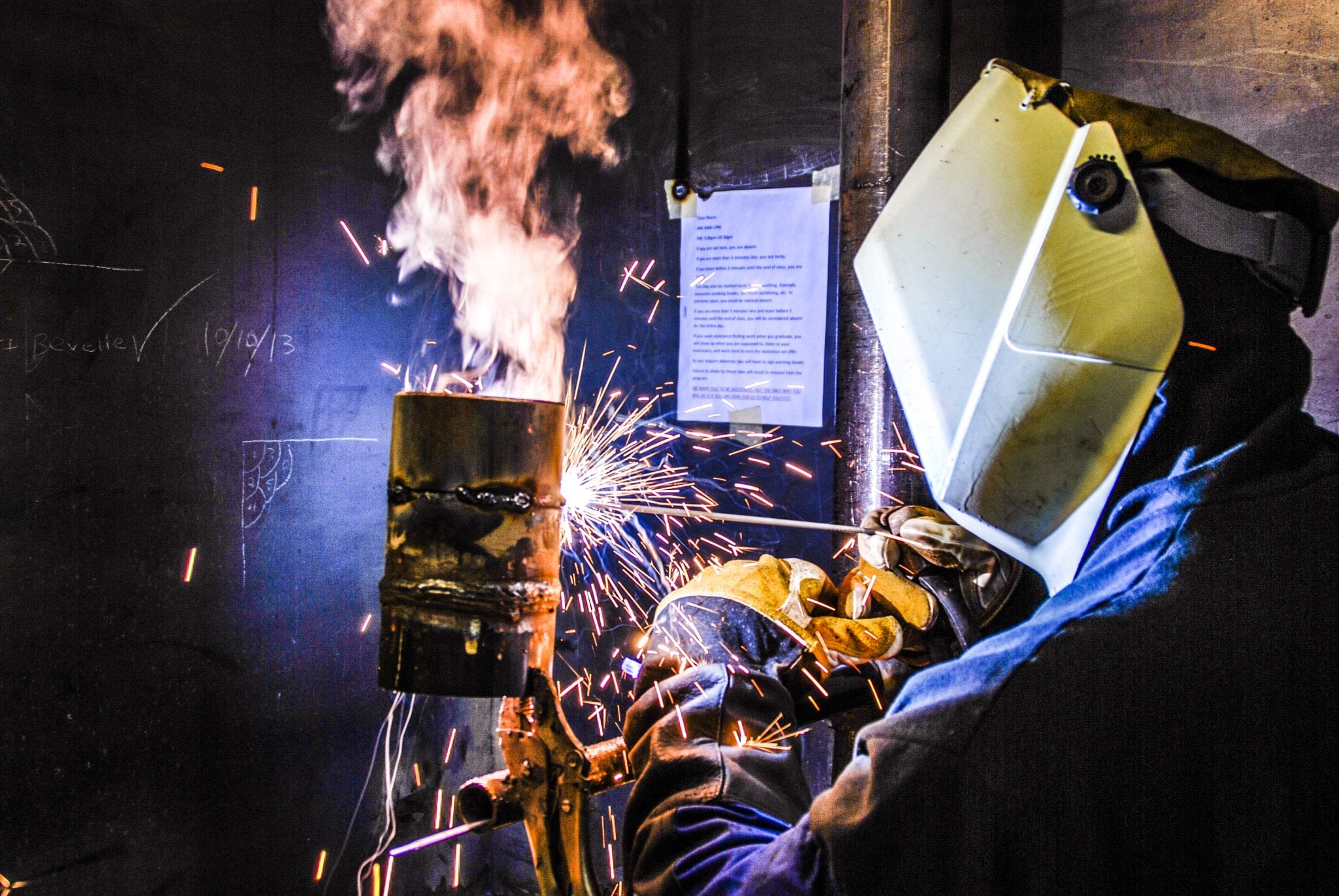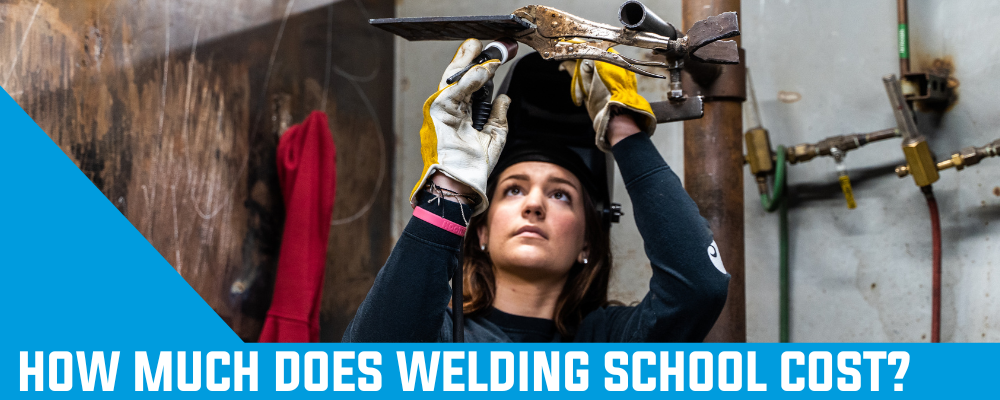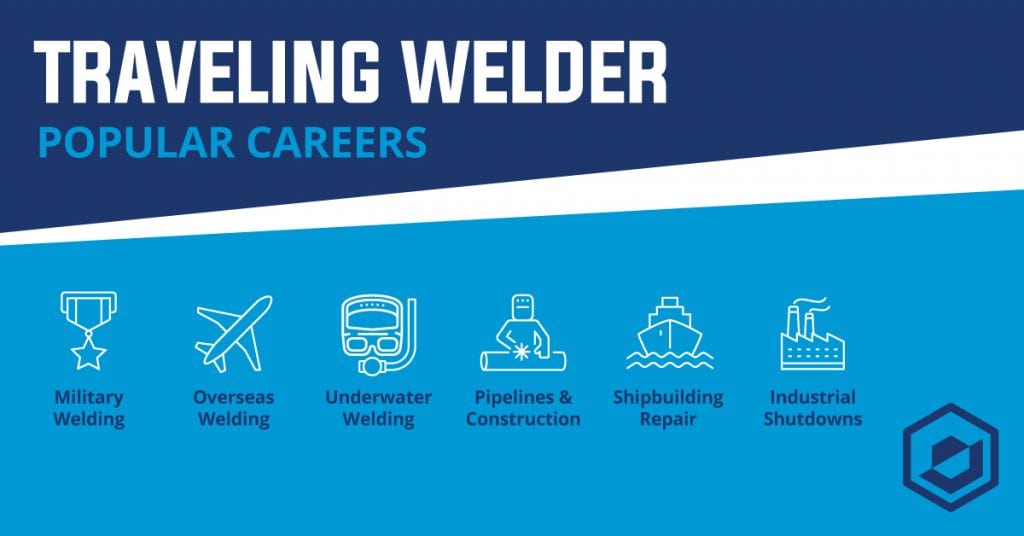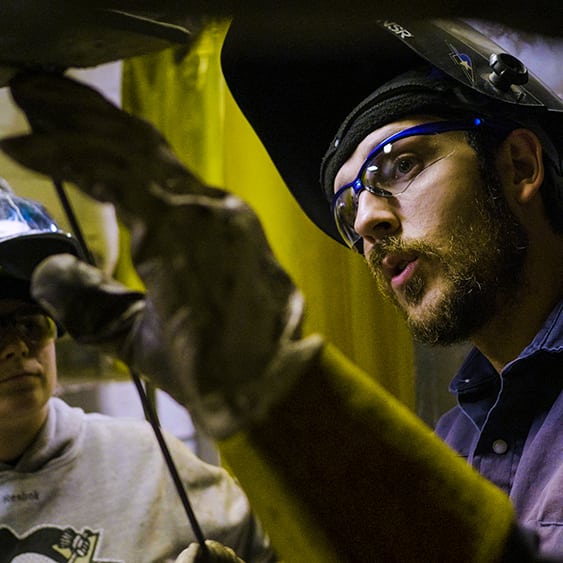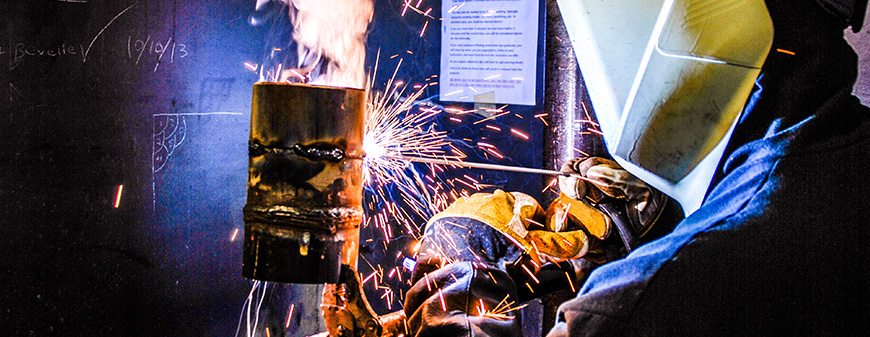
If you enjoy working with your hands and would like to have the flexibility to work in different industries, welding could be exactly what you are looking for in a career. Becoming a certified welder involves several steps, including having the necessary skill set, a certain level of welding training, and obtaining industry certification. Becoming a welder could be a rewarding career, learn more about a what a welder is.
What Do I Need to Become a Welder?
In a competitive labor market, welders these days are often expected to have training and expertise beyond a high school degree. This can include vocational training as well as industry certifications. Let’s take a closer look.
Welder Education Requirements
Typically, the minimum educational requirement for a welder is a high school diploma or equivalent. When it comes to hiring for entry-level positions, many employers nowadays prefer candidates with post-secondary education. At Midwest Technical Institute, you can complete a vocational welding training program and receive a diploma within 7 months (30 weeks.) The program aims to teach students the knowledge and skills needed for entry-level employment, including different welding methods, pipefitting techniques, and manufacturing fundamentals. MTI’s program includes the following classes:
- Properties of Metal
- Cutting Techniques of Metal
- Production Welding Techniques
- Safety Training/Cranes/Rigging
- Metallurgy/Vocabulary
- Basic Math/Basic Fitting Principles
Certification: How to Become a Certified Welder
Once you have graduated from a welding training program, you may want to consider obtaining industry certification. Several large organizations offer welding credentials, such as the American Welding Society (AWS), the American Petroleum Institute (API), and the American Society of Mechanical Engineers (ASME). Furthermore, individual employers may also conduct their own certification processes, especially if the work involves a specific type of equipment or manufacturing practice.
AWS
AWS offers various certifications for welders, including Certified Welder. Welders are tested in procedures relating to structural steel, petroleum pipelines, sheet metal, and chemical refinery welding industry. There is no minimum educational or work requirement to qualify for this certification.[1]
API
API has a number of advanced credentialing opportunities for welders. One such credential is Welding Inspection and Metallurgy, which requires candidates to have a minimum amount of one to five years (depending on their educational level) of work experience in the petrochemical industry.[2]
ASME
ASME provides a large number of certifications, among them the Boiler and Pressure Certification for welding companies. The certification allows welders to work on power boilers, heating boilers, pressure vessel, fiber-reinforced plastic vessels, transport tanks and valves.[3]
What Skills Do You Need to Become a Welder?
Welding requires a variety of skills and abilities. While it can be a physically demanding job, welding also calls for lots of cognitive abilities. Below is a breakdown of essential skills needed to be a welder.
Is Welding Physically Demanding?
Welders have various on-the-job responsibilities, some of which involve physical work.
Physical Qualities:
- Arm-Hand Steadiness – As welder, you need to be able to hold the welding gun steadily to achieve an accurate weld.
- Control Precision – Similarly, you have to be able to work very precisely to accomplish an exact weld.
- Multi-limb Coordination – You often have to coordinate two or more limbs while moving around to weld.
- Near Vision – Since you must pay close attention to your weld (and potential flaws), strong near vision is very important.
- Manual Dexterity – In welding, you are required to quickly move your hand to grasp or move the material that you are working with.
- Physical Stamina – You may have to stand for long periods of times and undertake repetitious movements.
- Physical Strength – As welder, you often lift heavy pieces of metal and move hefty welding equipment.
Interested in Learning More About Welding?
Fill out the form below to receive info about our career training programs.
What Are the Characteristics of a Welder?
A great welder will typically have a knack for problem-solving among other critical thinking skills.
Cognitive Qualities:
- Problem Sensitivity – You should be able to quickly tell of something is wrong or likely will go wrong with your weld.
- Visualization – Prior to welding two or more pieces together, you ought to have the capacity to envision the final product.
- Detail Orientation – Welders need to see the details and characteristics of a joint and identify changes in molten metal flaws.
- Deductive Reasoning – If something did go wrong, you must be able to apply general theories or knowledge about welding to find out why and how to potentially remedy the problem.
- Oral Comprehension – It is important to listen to and understand what supervisors, colleagues, or customers tell you about the welding project you are working on.
- Oral Expression – Similarly, it is essential that you are capable of communication information that others will understand.[4][5]
Interested in Becoming a Welder?
If you have the right qualities, training, and certification, then becoming a welder can be a straightforward journey. If you want to work in Illinois and Missouri, you won’t need a state-issued license as a welder.Learn more about Midwest Technical Institute’s Welding Programs by filling out the form below.
Sources- [1] https://www.bls.gov/ooh/production/welders-cutters-solderers-and-brazers.htm#tab-4
[2] http://www.api.org/products-and-services/individual-certification-programs/certifications/api577#tab_qualification
[3] https://www.asme.org/shop/certification-accreditation/boiler-and-pressure-vessel-certification
[4] https://www.onetonline.org/link/summary/51-4121.06
[5] https://www.bls.gov/ooh/production/welders-cutters-solderers-and-brazers.htm#tab-4
